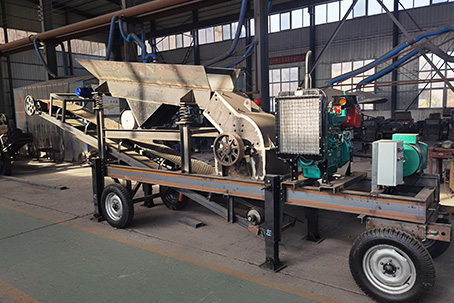


Lebanon is a small country in the Middle East with a rich geological history. The country is known for its diverse mineral resources, including iron ore, copper, and phosphate. One of the most significant sources of these minerals is the river pebbles found along the country's riverbeds. These pebbles are crushed to extract valuable minerals, which are then used in various industries.
## River Pebble Crushing Process
The process of crushing river pebbles involves several steps. First, the pebbles are collected from the riverbeds using excavators and transported to the crushing site. Once at the site, the pebbles are sorted based on their size and type. Larger pebbles are separated from smaller ones, and different types of pebbles are grouped together.
Next, the pebbles are fed into a jaw crusher, which crushes them into smaller pieces. The crushed material is then fed into a cone crusher, which further reduces the size of the pebbles. The final product is a fine powder that can be easily transported and processed.
## Mineral Extraction
Once the pebbles have been crushed, the valuable minerals are extracted through a process called magnetic separation. This process involves passing the crushed material over a magnet, which attracts the iron-containing minerals. The remaining non-magnetic material is discarded as waste.

The extracted minerals are then transported to processing facilities where they are refined and purified before being sold to various industries. Iron ore, for example, is used in the production of steel, while copper is used in electrical wiring and plumbing. Phosphate is used as a fertilizer in agriculture and as an ingredient in detergents and other household products.
## Environmental Impact
While river pebble crushing provides a significant source of income for Lebanon, it also has environmental impacts. The extraction process can disturb river ecosystems and lead to soil erosion and sedimentation. Additionally, the noise and dust generated during the crushing process can have negative effects on nearby communities.
To mitigate these impacts, companies involved in river pebble crushing must adhere to strict environmental regulations. They must also implement measures such as dust suppression systems, noise barriers, and water treatment facilities to minimize their environmental footprint.
## Conclusion
River pebble crushing is a crucial industry in Lebanon, providing valuable minerals for various industries. However, it is essential to balance economic benefits with environmental protection to ensure sustainable development. By implementing best practices and adhering to strict regulations, Lebanon can continue to benefit from this industry while minimizing its impact on the environment.